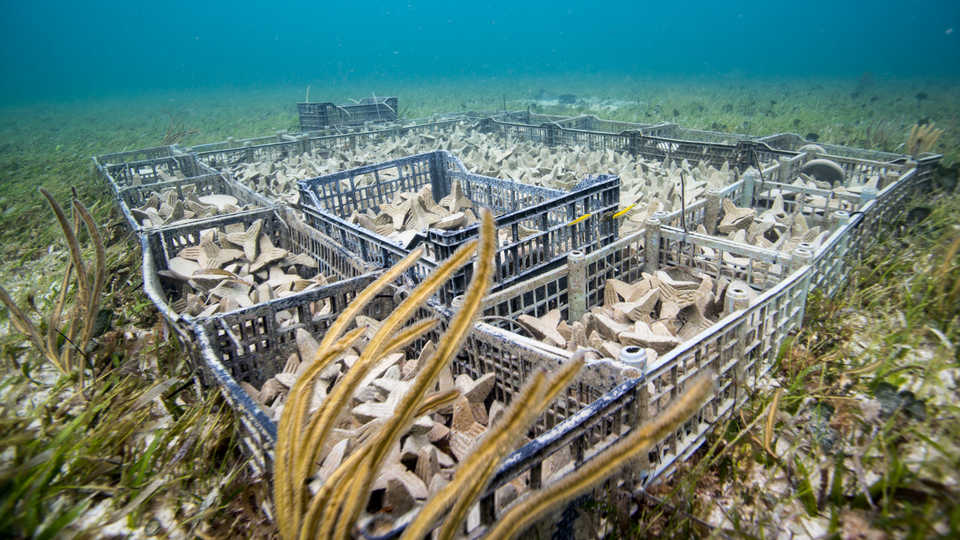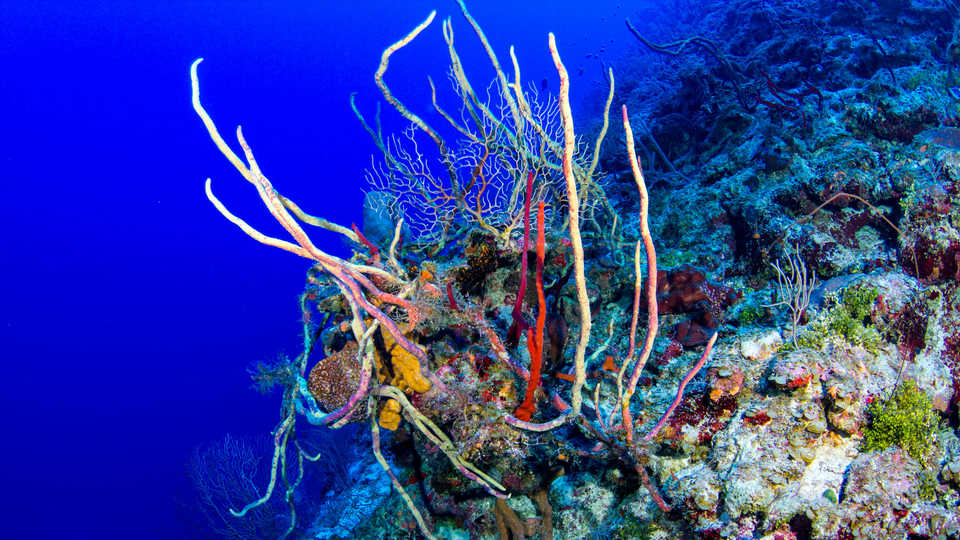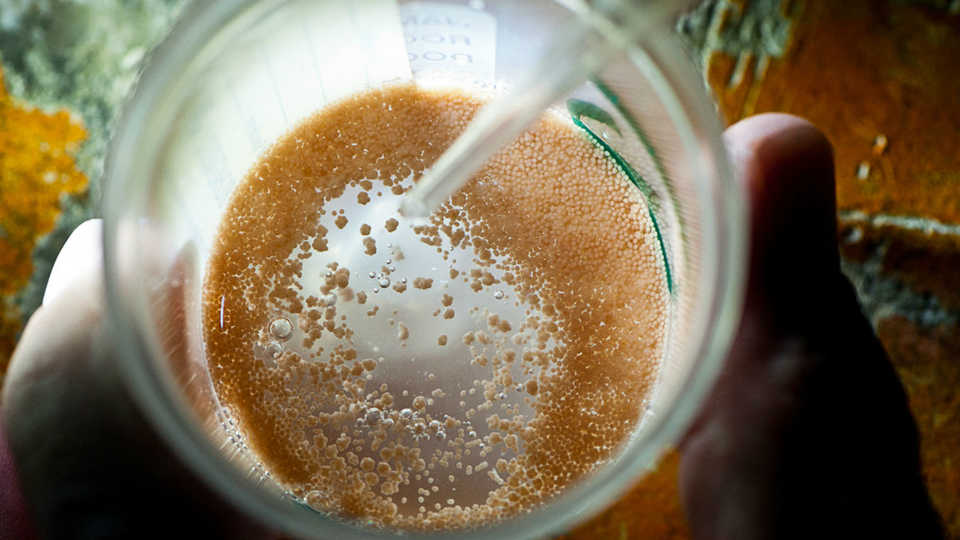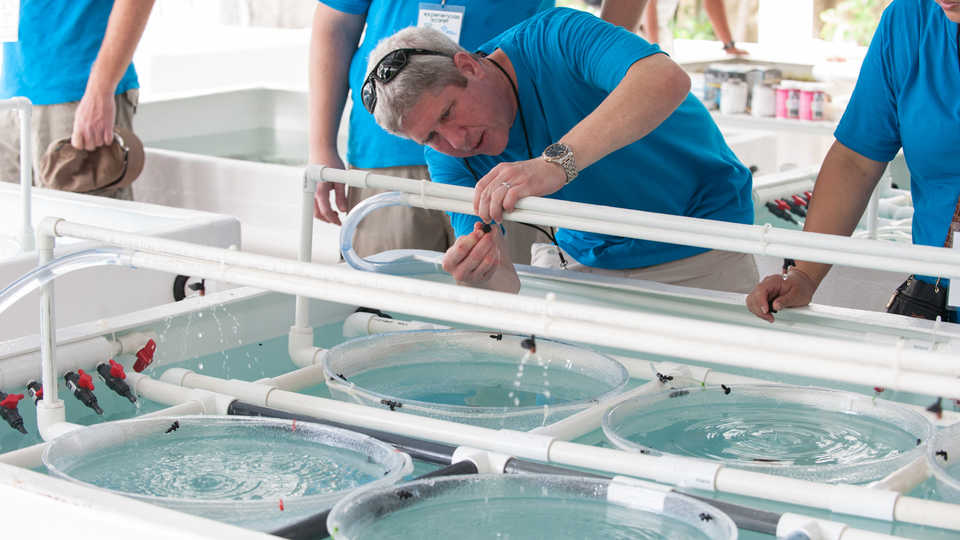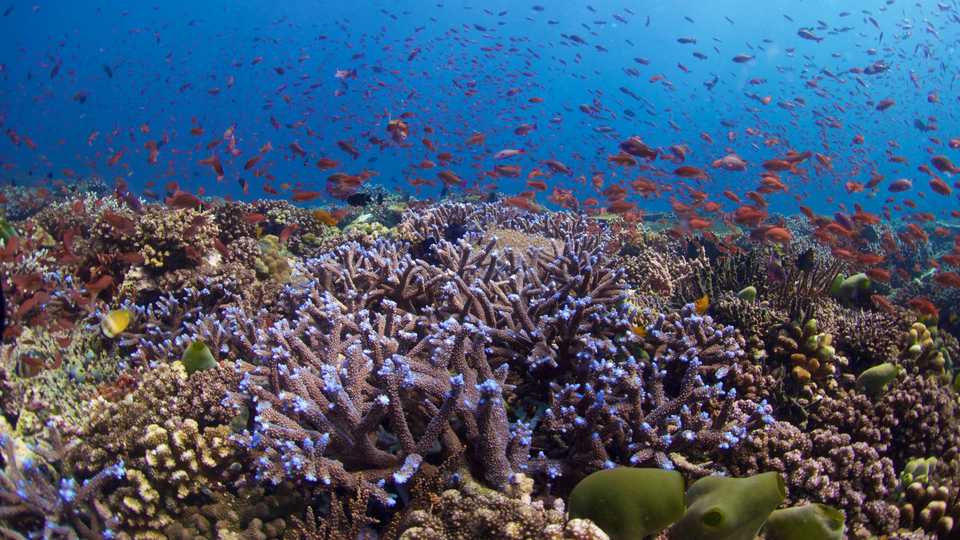The Institute for Biodiversity Science and Sustainability at the California Academy of Sciences is at the forefront of efforts to understand two of the most important topics of our time: the nature and sustainability of life on Earth. Based in San Francisco, the Institute is home to more than 100 world-class scientists, state-of-the-art facilities, and nearly 46 million scientific specimens from around the world. The Institute also leverages the expertise and efforts of more than 100 international Associates and 400 distinguished Fellows. Through expeditions around the globe, investigations in the lab, and analysis of vast biological datasets, the Institute’s scientists work to understand the evolution and interconnectedness of organisms and ecosystems, the threats they face around the world, and the most effective strategies for sustaining them into the future. Through innovative partnerships and public engagement initiatives, they also guide critical sustainability and conservation decisions worldwide, inspire and mentor the next generation of scientists, and foster responsible stewardship of our planet.
New scientific approach intends to rehabilitate imperiled coral reefs on a global scale
SAN FRANCISCO (June 16, 2016) – A powerhouse group of scientists and conservationists are joining forces to tackle the alarming decline of coral reefs worldwide. Today, the California Academy of Sciences and world-renowned SECORE International are announcing a historic step forward for coral reef research and restoration in the form of a cutting-edge new approach—millions of concrete, reef-attaching “seeding units”—to restore dwindling reefs with sexually-produced corals on a meaningful scale. The Academy is one of several leading institutions partnering with SECORE to apply this visionary restoration approach in reefs around the world.
“We’re not losing any time in our continued fight to understand, protect, and restore these majestic ecosystems,” says Bart Shepherd, Director of the Academy’s Steinhart Aquarium located in San Francisco. “The threats facing coral reefs are so gigantic that we need a monumental, coordinated effort to fight reef decline like never before. SECORE’s new scientific approach to restoring reefs will help break through the financial constraints that have slowed past conservation efforts. Our teams are hitting the water to save struggling coral reefs at this critical moment.”
This partnership is part of the Academy’s expansive new $8.5 million investment in coral reef research and restoration—including the hiring of expert curators Drs. Rebecca Albright and Pim Bongaerts—announced just last month.
Rehabilitating invaluable ecosystems
Nearly 75% of the world’s coral reefs are currently threatened by the combined impacts of overfishing, habitat destruction, water pollution, climate change, and ocean acidification. SECORE, the Academy, and a growing group of partners and supporters have spent years researching the use of sexual coral restoration to rehabilitate struggling reef ecosystems.
Though they represent less than 0.1 percent of global oceans, coral reefs—the most diverse marine ecosystems on Earth—provide significant marine habitat for countless animals. Reefs provide vital ecological services that support the livelihood and well-being of billions of people worldwide. All told, it is estimated that coral reefs provide human societies with vital goods and services worth several hundred billion dollars per year.
New approach gives reefs “a fighting chance”
SECORE’s use of sexually-produced corals in restoration efforts—a fascinating process in itself—has undergone an incredible transformation after more than a decade of research. Coral reefs are built over time by large colonies of tiny animals called stony coral polyps. These immobile animals release their eggs and sperm into the water column—often in mass spawning events that occur roughly once per year. When ocean conditions are poor, reef-building corals are unable to reproduce. Conservation scientists have developed ways of sexually producing large quantities of coral offspring that are genetically diverse and are raised on land and in ocean-based nurseries.
“In 2015, our restoration work ramped up thanks to the invention of a new ‘seeding unit’ for corals. We raise coral larvae that settle on these ‘seeding units’ and grow them into young corals,” explains SECORE Founder and Executive Director Dr. Dirk Petersen. “Restoration work typically involves mounting each new coral onto the reef by hand. Because this process is so labor and time-intensive, and therefore limited in scale, we developed a new type of unit that can attach itself to a reef without our help. Partners like the Academy will help us spread this new technique to help rehabilitate troubled reefs far and wide.”
Petersen notes heartening news from Mexico and Curacao, where large-scale restoration pilot projects involving the self-attaching units have served as a promising start for the new technique. Each fist-sized, tetrapod-shaped seeding unit is made from concrete and mimics the giant pieces used to build breakwater structures in global waters. Much like the process of scattering seeds in farming fields, scientists and partners aim to sow corals onto degraded reef sites around the world.
Collaborative support
Dr. Rebecca Albright, one of the Academy’s newest curators and a leading expert on how ocean acidification and warming seas impact coral reefs, will take an active role in this collaborative restoration effort. Albright will join additional conservation scientists and partners in SECORE-managed field sites worldwide as they work to expand our knowledge of coral biology, resilience, and the ability to support the rehabilitation of degraded coral reefs with the new “seeding units”.
“The Academy’s increased support will add critical staff and resources to SECORE’s world-changing work,” says Shepherd. “Beyond our support of new scientists in critical field locations like Curacao, the Academy’s goal is to help ship millions of these concrete units to reef sites and expand conservation training workshops around the globe. We are doing everything we can to change the coral reef story from tragedy to hope.”
Already global leaders in this field, the Academy and SECORE will continue to develop and apply science-based technologies to increase survival of coral reefs on a global scale. Together with a growing network of partners, the Academy’s unique mix of scientific expertise, world-leading ocean exploration skills, on-the-ground conservation efforts, world-class aquarium and coral culturing facilities, and innovative educational platforms will give critical marine ecosystems the science-based help—and global attention—they deserve.
SECORE International is a leading non-profit conservation organization for the protection and restoration of coral reefs, based in Germany and the USA. SECORE works in a global network of scientists, public aquarium professionals and local stakeholders and uses a multidisciplinary strategy combining research, education, outreach and active reef restoration. SECORE uses sexually produced corals for restoration to promote genetic diversity, employing ingenious new techniques for seeding large numbers of coral recruits without the need to transplant each coral by hand.
Press Contacts
If you are a journalist and would like to receive Academy press releases please contact press@calacademy.org.
Digital Assets
Hi-res and low-res image downloads are available for editorial use. Contact us at press@calacademy.org to request access.
